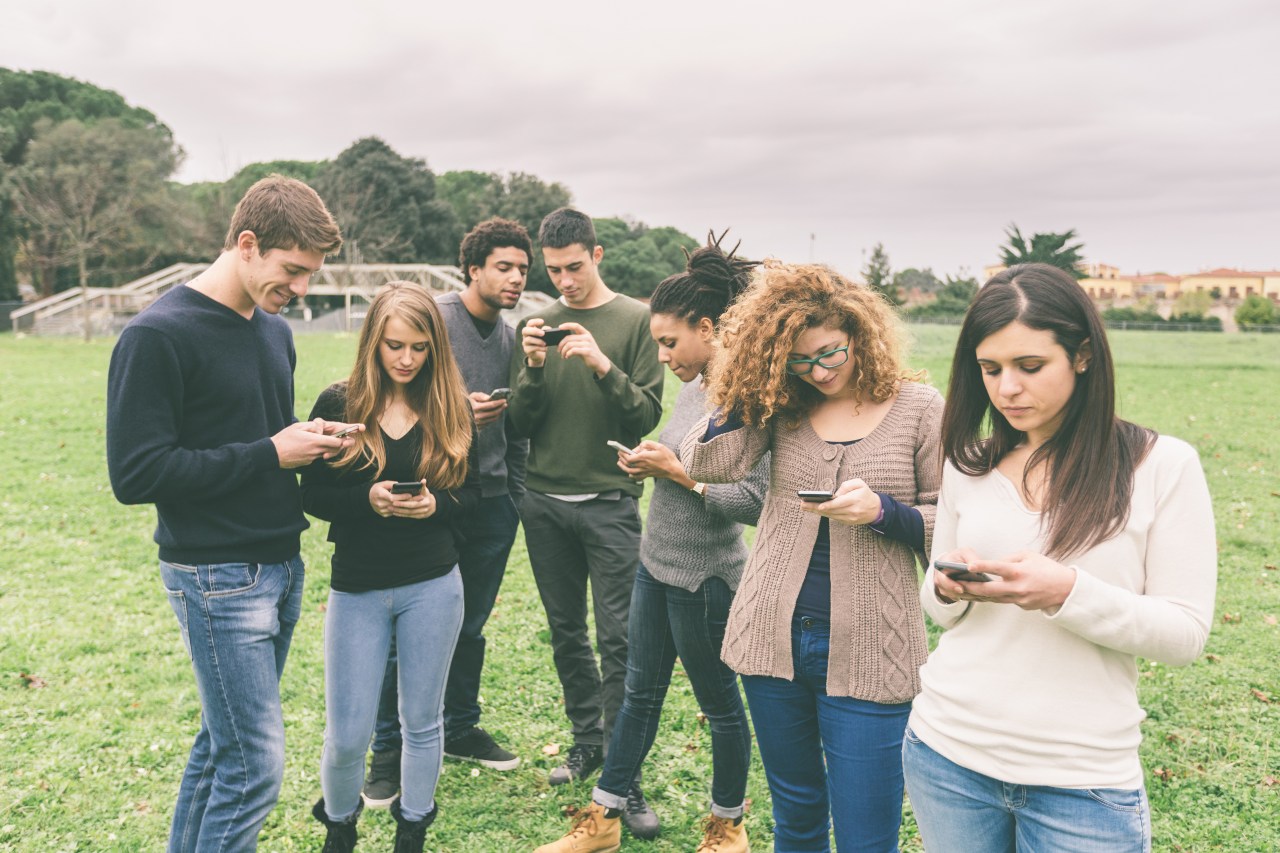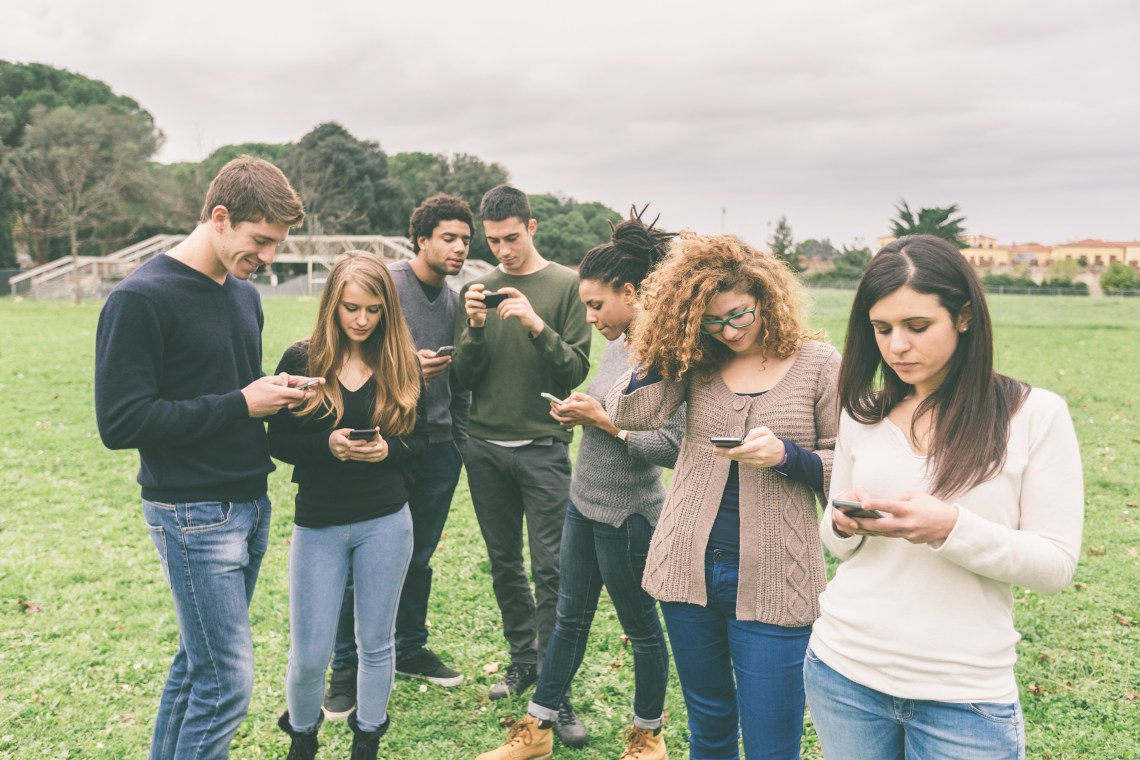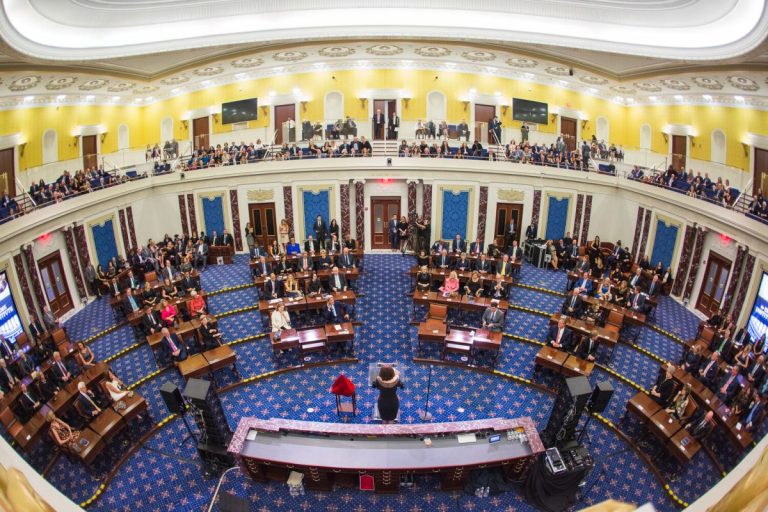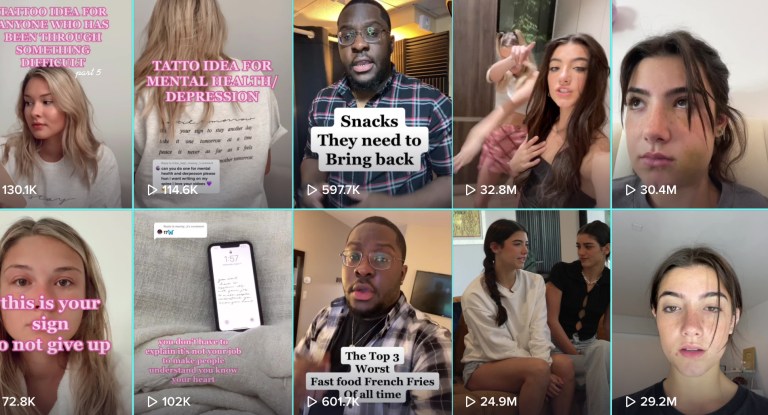
The Rise of Antisocial Media, Why Reddit And YouTube Are Gen Z’s Favorite Hangouts
Why the abrasive, anonymous nature of platforms like YouTube and Reddit may have grave – and very real – consequences for the “always online” generation.
By James Swift

Why the abrasive, anonymous nature of platforms like YouTube and Reddit may have grave – and very real – consequences for the “always online” generation.
Way before Facebook and Twitter were publicly-traded companies, the Internet has long-served as something of a virtual watering hole. While Myspace may get all the credit for kick-starting the social media revolution, the Internet has actually been used for machine-assisted mingling and hypertext hobnobbing since its inception. Decades before YouTube and Wikipedia (and even the World Wide Web itself) existed, online communities bloomed around Usenet and bulletin board systems. In the great migration from AOL to Google, chat rooms and forums occupied the conversational gap that would later be filled by platforms like Instagram and LinkedIn.
While there is nothing inherently new about online social networking, its overall cultural relevancy is still fairly recent. The Pew Research Center reports that in 2005, only 10 percent of U.S. Internet users had at least one social networking account. By last year, however, that number had increased to 76 percent. One study from 2015 estimates there are at least 165 million Facebook users in the United States alone, representing a population that is easily four times larger than California. And they are spending a tremendous amount of time on the platform, as well; according to a 2014 study, the average U.S. Facebook user spends 39 minutes a day browsing the site … which, according to Bureau of Labor Statistics research, is twice as much time the aggregate American spends each day exercising or thinking.
However, something very interesting is happening to the top dog of social media sites. While the number of active users of sites like Tumblr and Pinterest nearly doubled in 2014, Facebook saw its active user population drop by 9 percent. Leading the charge in Facebook absconders were those in the 15-19 demographic, who have since moved on to mobile services like Snapchat, Kik and Yik Yak.
This migration certainly has a lot to do with the ubiquity and convenience of smart phone and tablet technology. According to Flurry Analytics, the average American now spends nearly an hour more per day tinkering with mobile apps than they do watching television – a sum that evens out to 220 minutes a day, swiping, poking and prodding touch screens. Alas, there are certainly other factors at play regarding why so many high schoolers and college students are hopping off the Mark Zuckerberg bandwagon, with each saying something very interesting about the psyche of Gen Z.
The initial appeal of Facebook was that it was a closed social media network. In that, its power was in localized content, centralized around a specific college, school or university. It provided a certain sense of real-world functionality, allowing users to connect with people within their own physical social spheres for a litany of activities, from swapping text books to finding roommates to scoping out weekend keggers. By opening up the medium to everyone sans an e-mail account with an .edu suffix, however, the platform quickly lost its immediate intimacy and utility. Instead of being a virtual souk with worthwhile functions, it became a gigantic telephone pole for everyone to staple their meaningless musings and unsolicited opinions. When kids started opening their feeds and getting bombarded by Minions memes from their aunts and crypto-racist tirades from their uncles, Facebook quickly lost a lot of its luster.
It’s quite obvious the younger generation wants to get away from such superfluous information overload, so it seems only natural they would forsake Facebook. But they are also leaving other popular social media networks in droves, too. Per Pew research from 2015, barely a third of the 13-17 demographic in the U.S. even uses Twitter anymore. Indeed, as of 2014, just one sixth of Twitter users are still active – meaning that an estimated 697 million of the site’s 938 million accounts are going unchecked for months on ends.
The jump to more inclusive networking sites and apps, however, may indicate something beyond a desire to get away from parental intrusion. The most popular social media platform for today’s 20-and-under set isn’t a privacy-centered upstart like Whisper or even established, mobile-driven heavy hitters like Tumblr and Instagram. Rather, the network Gen Z is most engaged with is YouTube, which older crowds tend to view as more of a search engine than a social interaction module.
What makes YouTube especially interesting in this scenario is that the bulk of those using the site never actually upload any videos themselves. One Pew report found that, despite the site’s immense popularity, just 34 percent of those in the 18-34 demographic have ever uploaded any kind of video content online, with just 28 percent reporting they’ve uploaded content they created themselves.
Similarly interesting data pops up when you analyze the age distribution of online communities such as DeviantArt, where those 24 and younger make up half of all users, and Reddit, where more than a third of all users are less than a quarter century old. By comparison, those 24 and younger make up barely a tenth of the Pinterest user base and roughly 15 percent of the total Facebook audience.
Considering the gargantuan number of users on content-aggregator and user-generated platforms like Reddit and YouTube, younger people clearly aren’t jumping ship to gain more restrictive social circles or avoid a surfeit of unsought information (which would be the allure of Snapchat and Kik.) So what is drawing Gen Z to these networks, then?
The short answer is anonymity. As a throwback to the old BBS and Usenet days, these platforms allow users to hide their real-world persona, which is the antithesis of services like Facebook and Twitter which are more or less designed for individuals to publicly flaunt themselves and their achievements. Whereas those two social media sites allow one to effectively “brand” him or herself as a commodity (in which “likes” and followers represent a literal social currency), the content aggregators and user-generated sites allow for complete deindividuation. Not only do users no longer have to communicate as their real-live selves on these platforms, they don’t actually have to communicate as any kind of “self.” Their corporeal presence is submerged under a username, an abstract “avatar” and a lingering cyber-trail of comments and upvotes. They stop existing as human beings and instead assume the role of immaterial opinions – which, for the most part, they are unwilling to state as “real life” people, for any number of reasons.
This deindividualization can have obvious net benefits, allowing youths who live in relative social isolation or exhibit certain “IRL” communicative deficiencies a venue to express themselves and connect with others who share certain interests and commonalities. However, this “personality cloaking” also lends itself to two very large negatives; toxic disinhibition and, ironically, a greater need to achieve in-group approval.
During the heyday of CB radio, psychologist John Surler noted how the anonymous nature of the medium created “a pipeline to the depths of the American unconscious,” allowing the foulest and most disgusting of behavior to emerge without fear of reprimand. The same holds true for the Internet, where oftentimes even the most obnoxious of behavior is “penalized” with nothing more than a ban that can be easily surmounted by simply creating a new account. Naturally, this allows the especially malicious to engage in activities that would rightly be considered assault – harassment, cyber-bullying, so on and so forth – if enacted in-person, with virtually no concerns whatsoever about being rebuked. The largely unchecked vitriol spewed on YouTube comments sections reveals a cesspool of racism, sexism, and homophobia, often complemented by fabricated machismo and make believe toughness that borders on elementary school playground posturing. The marketplace of ideas and the forum of intellectual debate thus transmogrifies into a middle school locker room, where narcissistic rage and pack animal cruelty reigns supreme; only this time, it’s the aggrieved, loathsome nerds doling out the proverbial wedgies and purple nurples in the form of “downvotes” and needlessly “flagged” content.
Instead of being creative spaces, user-generated networks like YouTube instead become a sandbox for virtual vandals. Instead of adding to the collective conscience, the keyboard barbarians engage in the online equivalent of busting windows, soaping windshields and knocking over mailboxes. Their “crimes” are petty and usually devoid of physical harm, but it’s destructive, antisocial behavior nonetheless. Here, the intent of the platform isn’t to communicate with others and forge bonds, or even express one’s own ideas and notions; rather, it is to spread as much rancor and negativity as possible, to dehumanize and degrade as many individuals as one can. The YouTube “troll” ultimately ascends (descends?) to a mental state in which he (and much, much less commonly, she) no longer views other people on the site as individual human beings, eventually getting sucked into a whirlwind of solipsistic introjection and asynchronicity. In short? They completely lose touch with reality and withdraw into their own manufactured world of hostility and disgust. As evident by the end outcomes of aggrieved, isolated, Internet-obsessed dweebs like Adam Lanza, James Holmes and Jared Loughner, perhaps you can see why this virtual madness has significance well beyond the glow of a plasma screen monitor.
As deplorable as the “communication” on YouTube may be, it at least resembles some sort of one-on-one interaction. The social networks formed around content aggregators like DeviantArt and Reddit, however, takes the deindividuation to an entirely different level.
Here, one’s physical identity is completely purged and all that matters is what preexisting content one can add to the collective psyche. To be fair, in many instances, this is hardly a negative. In the more civil subsets of such sites, the platforms actually do become valuable, crowd-sourced information repositories, and in the case of DeviantArt and its ilk, they actually do become a showcase for amateurs to display their own creative works. However, the anonymity of the platforms, once again, leaves ample room for the more antisocial masses to run wild.
When one’s identity – their race, their gender, their sexual orientation, their religion, so on and so forth – is concealed, the utopian social media hypothesis is that individuals will finally be freed to openly communicate with others. As nothing more than a user name, others have no ability to ascribe their own prejudices upon them, and as such, the platforms are supposed to allow people to engage in fully democratic discourse.
As Reddit demonstrates, however, this abolition of self actually creates more balkanization and reinforces herd mentalities. Instead of openly communicating with others, users often find themselves subscribing to niche “subreddits,” which are effectively little more than special interest echo chambers. This, naturally, leads to users flocking to like-minded brethren and completely walling themselves off to those with differing perspectives (or, as common practice on YouTube, spending hours per day “downvoting” those who foster dissident viewpoints.)
As one would expect, the platform certainly allows more lascivious, bigoted and cynical content to thrive. To give you an idea of the general antisocial nature of the site, one of the most popular subreddits, r/Cringe, is dedicated solely to basking in the humiliation of others. And if that’s not disturbing enough for you, other subreddits explore even more unsettling territory, including such fanciful topics as used tampons, defecation, popping boils and pimples and necrophilia. And that’s to say nothing of the terrifying displays of so-called “internet vigilantism” that have resulted in innocent people having their personal information stolen and posted online, some of whom have been “pranked” with death threats and swatting hoaxes.
When a user posts something on Reddit or Digg (assuming people still use such an antiquity), he or she has no intended audience. Rather, he or she is simply throwing something out into the online void, with the hope that large masses of people will find the morsel worthy of comment. This mentality goads users into pursuing what philosopher Rene Girard deemed mimetic desire, the want of what others want instead of what an individual actually has an interest in. For the want of utterly meaningless trophies such as Reddit Gold and link karma, individuals will simply regurgitate whatever the popular meme du jour is with the aspiration of going viral – which, fundamentally, is nothing more than mass affirmation from an indistinct blob of others cloaked in anonymity.
Whether in subreddit enclaves or in shameless attempts to get “front paged,” the modus operandi is the same. Users, by and large, have no incentive to post their own thoughts or musings, as they have no mass appeal to the nameless, faceless Internet cosmos. Or worse yet, those unwelcome strains of individualistic thought may incur the wrath, ridicule or rejection of whatever in-group they belong to. In an era in which well thought-out posts are chastised as being too long to read (the popular expression for such content is “tl;dr”), these affirmation-craving souls reduce their posts to the lowest-common-denominator, leading to a deluge of repetitive, hyper-reductionist memes, macro-images and other barely literate messages dominating the shared online sphere. Whatever direct user-to-user interaction transpires predominantly takes the form of woefully uncomplex insult exchanges; most threads, however, simply devolve into a meandering string of non sequiturs, with users attempting to win the favor of their fellow online non-beings through copious pop culture allusions or offhanded references to more popular content making the rounds on the site, often using “comedic” infantile lingo and intentionally misspelled words to add to the overall affect.
According to Nielsen, the average U.S. adult spends approximately eleven hours a day in front of a screen. For Gen Z and some of the younger Gen Y cohorts, they are never untethered from the grip of the Internet, with 25 percent of American teens reporting they are constantly online per Pew. The next wave of high school students will likely be the first cohort in U.S. history who spend more time interacting virtually than they do face-to-face, and the societal repercussions could be severely detrimental.
Employer survey after survey reveals that top companies want the same three traits in their employees; communication skills, leadership capabilities and teamwork ethics. The emerging asocial media trends described above run in the totally opposite direction, promoting insular (and to some extent, sociopathic) behavior, a dependency on conventionalism and, perhaps most troubling, an aversion to actual interaction with flesh and blood people. This isolationist reliance on machine-assisted, deindividuated “communication” certainly hampers one’s ability to actively socialize and develop the soft skills that are vital in all lines of work, and a growing body of research suggests that such unsociable experiences are literally retarding users’ cognitive development.
While our collective worries that social media platforms like Facebook and Twitter will result in youths turning into vapid, self-absorbed materialists may persist, in those instances the users remain individuals at least nominally connected to the real world. The anti-existence embraced by today’s Reddit and YouTube trolling youngsters, however, is likely to lead us into much more concerning dilemmas than lukewarm discussions about a cyber-culture of vanity and oversharing.
This growing inclination towards antisocial media represents an all too palpable disconnect between America’s youths and the world outside themselves. The final consequence of this disembodied, uncivil, consequence-free absorption into faux human interaction could be something far more disastrous than disaffection and disenchantment. Indeed, we’re on the cusp of producing an entire generation who will live their whole lives in a Web of disdain and delusion, effectively breeding a culture firmly incapable of accepting – or processing – the reality beyond their iPhone screen. ![]()











